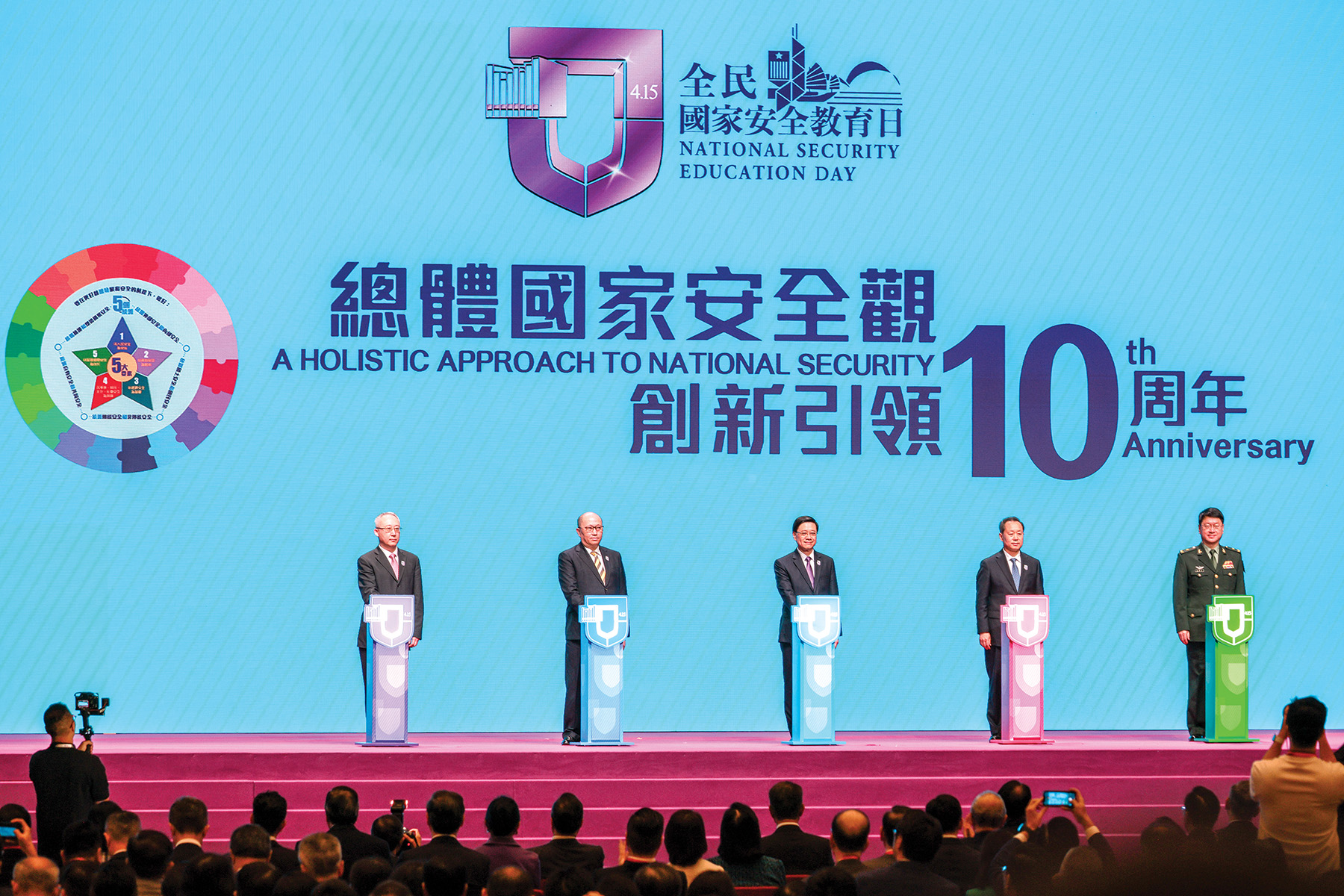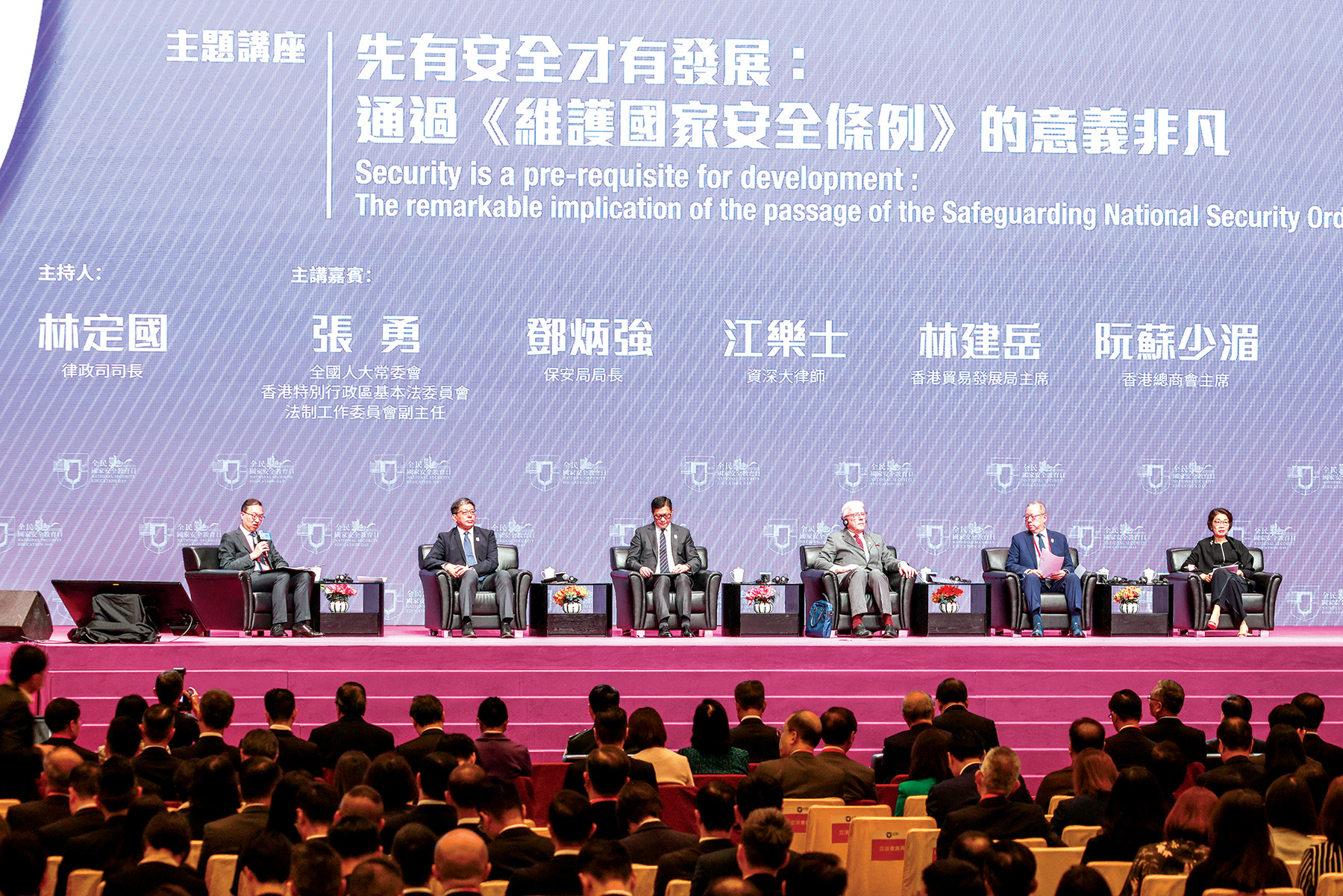CE: Unpredictable, covert dangers from hostile forces still lurk in HK

Hong Kong’s enactment of the Safeguarding National Security Ordinance has turned itself into an “impregnable fortress” in protecting national sovereignty, safety and development interests.
Zheng Yanxiong, director of the Liaison Office of the Central People’s Government in the Hong Kong Special Administrative Region, praised the legislation as a major achievement in fulfilling the city’s constitutional duty. He made the remarks on Saturday during the Hong Kong Police College’s open house activities to mark National Security Education Day, which is observed annually on April 15.
As part of the commemoration, an opening ceremony will be held on Monday, which includes a video speech by Xia Baolong, director of the Hong Kong and Macao Work Office of the Communist Party of China Central Committee.
The ceremony will be followed by a high-level seminar and a series of community activities aimed at raising public awareness of national security and making more residents realize their roles in preventing and addressing national security risks. The events include carnivals, a quiz on national security, parades and a drawing competition.
Zheng said that the enactment of the ordinance has put into action “a holistic approach to national security” — a concept introduced by President Xi Jinping on April 15, 2014. The law has helped the rule of law in Hong Kong enter a new chapter of effectiveness and functionality.
Over the past decade, Xi’s concept has systematically reshaped the understanding of national security and significantly promoted safeguarding national security, Zheng said. An important part of this process is Hong Kong’s transformation from chaos to order and prosperity, he added.

The local national security law, enacted on March 23 to fulfill the city’s constitutional obligation under Article 23 of the Basic Law, prohibits five types of crimes that endanger national security, namely treason, insurrection, theft of State secrets, sabotage and external interference. The ordinance complements the National Security Law for Hong Kong enacted in June 2020.
Zheng said it is now more important to enforce the law and ensure the effectiveness and authority of the legislation. He also called on residents to uphold national security, jointly safeguarding the city and promoting its development.
Also speaking at the police college event, Chief Executive John Lee Ka-chiu noted the special meaning of this year’s National Security Education Day as the first celebrated following the accomplished mission of enacting the law under Article 23 of the Basic Law.
Later in a written statement, Lee urged the public to remain vigilant considering the increasing complexity of prevailing geopolitics and the imminent nature of national security risks. He noted that the means taken to endanger national security can manifest in various forms and persist over time, while the threat can emerge suddenly.
He also extended a warm welcome for Xia’s attendance at the Monday ceremony.
The open house at the Hong Kong Police College attracted more than 2,500 residents who learned about the force’s operations and broader national security information during various activities.
Secretary for Justice Paul Lam Ting-kwok, who attended the Fire and Ambulance Services Academy’s open house hosted by the Fire Services Department, called on residents to understand the significance and importance of safeguarding national security.
“When a fire breaks out, it is always the firefighters who rush to the forefront. However, when it comes to safeguarding national security, everyone can take a frontline role,” he said.
Lam said that during Monday’s seminar, he would discuss the relationship between high-quality development and high-level security.
In another relevant community activity in the Yau Tsim Mong district, Secretary for Security Chris Tang Ping-keung said that although Hong Kong has improved its legal framework and enforcement mechanisms for safeguarding national security, the city should not relax its vigilance.


